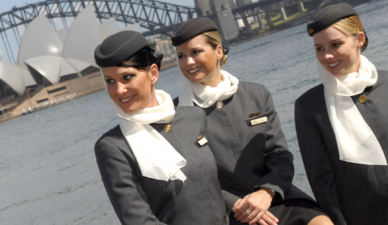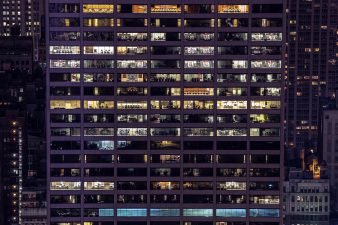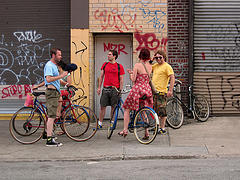 Is marketing Egypt as the next hot spot for high-tech architecture the right way to deflect Dubai’s failure?
Is marketing Egypt as the next hot spot for high-tech architecture the right way to deflect Dubai’s failure?
From an ecological perspective, Dubai is heading towards failure. From an economic perspective, some argue that it already has. How will this improbable city pick up the pieces? Todd Reisz, an architect based in New York City, helped contribute to Al Manakh – a two-part analysis of Gulf countries from an architectural perspective.
Al Manakh Continued focuses on how Gulf cities are coping with the economic downturn by turning their developmental and technological prowess outward. Blogging for Huffington Post, Mr. Reisz discusses post-fall Dubai in particular within the context of Cityscape, an annual real estate fair. Typically characterized by exuberant glitz, this year’s event was more subdued.
“First it was “booming Dubai,” and then “sinking Dubai,”” wrote Mr. Reisz, who then asked “Where do things stand now?”
According to him, the most succinct answer to this question is that Dubai has gone “back to basics,” something best represented by the changing flavor of Cityscape.
“Cityscape once unabashedly revealed the global conversion of real estate from a conservative alternative investment into a consumer frenzy,” he wrote. This year it was certainly not glitzy — no robots, no iPod-shaped towers, no free knickknacks, no flying falcons, but one might question if it is indeed as simple as “back to basics.”
He sited Jones Lang LaSalle, a well-known economic forecaster in the region, who claimed that the UAE’s economic status is “stable.” Deflect this notion, Cityscape pushed media coverage of up and coming and even non-Gulf countries instead. Here’s what Todd said about that:
“Want to do better than stable? Everyone will tell you two places: Saudi Arabia and Egypt. Cityscape tried to focus on international development … but its efforts proved to have little effect. Only one Saudi developer exhibited. Egypt was the most represented non-GCC country, and Cityscape worked hard to promote the pavilion. One Egyptian developer at Cityscape leveraged the limelight to exaggerate architecture’s purpose, like old times:
“There is an overwhelming need in Egypt for developments of the highest international standards required by the serious and growing investment climate of the country… The Stone Towers needed an architect with daring ideas, innovation, international expertise and experience… it needed Zaha Hadid.”
Using Zaha Hadid’s example was unfortunate since she has several failed projects in the Gulf, according to Mr. Reisz. Not to mention that Egypt’s citizens can’t even afford to buy tomatoes, and the country doesn’t have sufficient energy to support its existing demand. Do we really need to export Dubai’s model to a place like this?
Mr. Reisz notes that Dubai established architecture first and then worried about infrastructure. But that was clearly a costly mistake – especially environmentally. With no fresh water resources, Dubai dangles on a dangerous precipice with only a four-day back up of desalinated supply. And scores of apartments lay wasted with no one to occupy them.
Although it is already a giant construction zone, Egypt should learn from Dubai’s mistakes, and from the past summer’s frequent black outs. The country simply can’t contain blind expansionism a la Dubai.
More architecture and urban news from Dubai:
Burj Khalifa Takes Project of the Year At Middle East Architecture
Dubai Properties Faces $7.3 Million Lawsuit
Artocos: Architectural “Musical” Activism in Dubai
image via Todd Reisz



